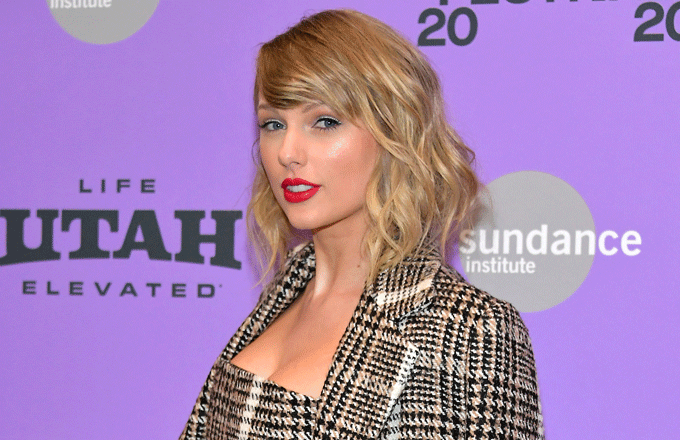
On Thursday night, the new Taylor SwiftNetflix documentary Miss Americanadebuted at Sundance. And in the doc Swift spends time talking about her past struggles with an eating disorder.
According to Variety, Swift begins by talking about the impact that seeing an occasional picture she considered unflattering would have on her psyche.
"It’s not good for me to see pictures of myself every day," she says in a voiceover. Admitting that in the past "a picture of me where I feel like I looked like my tummy was too big, or… someone said that I looked pregnant … and that’ll just trigger me to just starve a little bit — just stop eating."
She further elaborated on that internal fight with her self-image during an interview that was published this week in a Variety cover story. And also how it was something she was on the fence about sharing with audiences.
“I didn’t know if I was going to feel comfortable with talking about body image and talking about the stuff I’ve gone through in terms of how unhealthy that’s been for me — my relationship with food and all that over the years,” she told the outlet. “But the way that Lana (Wilson, the film’s director) tells the story, it really makes sense. I’m not as articulate as I should be about this topic because there are so many people who could talk about it in a better way. But all I know is my own experience. And my relationship with food was exactly the same psychology that I applied to everything else in my life: If I was given a pat on the head, I registered that as good. If I was given a punishment, I registered that as bad.”
She also detailed a specific instance of this punishment/reward system that came early on, during her teen years, after which a tabloid had given her confidence an opening blow.
“I remember how, when I was 18, that was the first time I was on the cover of a magazine,” she recalled. “And the headline was like ‘Pregnant at 18?’ And it was because I had worn something that made my lower stomach look not flat. So I just registered that as a punishment. And then I’d walk into a photo shoot and be in the dressing room and somebody who worked at a magazine would say, ‘Oh, wow, this is so amazing that you can fit into the sample sizes. Usually we have to make alterations to the dresses, but we can take them right off the runway and put them on you!’ And I looked at that as a pat on the head. You register that enough times, and you just start to accommodate everything towards praise and punishment, including your own body.”
As for Wilson, she said that the section in which Swift speaks openly about the issue is one of her favorite parts of the documentary.
"That’s one of my favorite sequences of the film,” Wilson said. “I was surprised, of course. But I love how she’s kind of thinking out loud about it. And every woman will see themselves in that sequence. I just have no doubt.”
The director also went on to talk about the bigger issue at stake. “You can also just not notice people being really skinny, because we’re all so accustomed to seeing women on magazine covers who are unhealthy-skinny, and that’s become normalized,” she said. “It’s incessant, and I can say this as a woman: It’s amazing to me how people are constantly like ‘You look skinny’ or ‘You’ve gained weight.’ People you barely know say this to you. And it feels awful, and you can’t win either way. So I think it’s really brave to see someone who is a role model for so many girls and women be really honest about that. I think it will have a huge impact.”
Through the usage of then-and-now images, the film attempts to illustrate the difference between Swift's body from that era, versus a more recent tour she went on in 2018. She says that under-eating had previously had a major influence on her stamina while performing.
“I thought that I was supposed to feel like I was going to pass out at the end of a show, or in the middle of it,” she remembered. “Now I realize, no, if you eat food, have energy, get stronger, you can do all these shows and not feel (that exhausted).”
Miss Americana will be available to stream on Netflix starting January 31.
